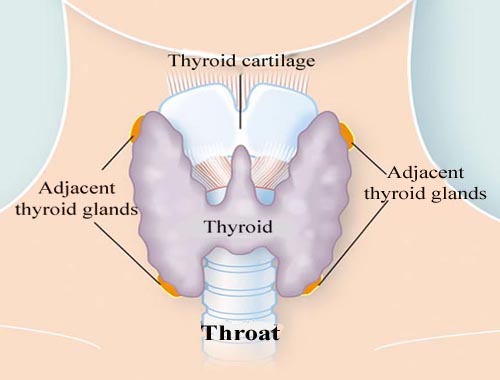Hashimoto Thyroiditis; Hypothyroidism
The major symptoms of hypothyroidism (weight gain, depression, fatigue) are often attributed to other causes, and the disease can go untreated for years because of this. Some estimate that as much as 15% of the population has it to some degree, and a large number of these individuals go undiagnosed and untreated. While blood tests can help in diagnosing, many have such a mild form, irregularities are not always detected, making this an incredibly difficult condition to pin down. Hashimoto's disease is a disorder that affects your thyroid, a small gland at the base of your neck, below your Adam's apple. The thyroid gland is part of your endocrine system, which produces hormones that coordinate many of your body's activities. In Hashimoto's disease, also known as chronic lymphocytic thyroiditis, your immune system attacks your thyroid gland. The resulting inflammation often leads to an underactive thyroid gland (hypothyroidism). Hashimoto's disease is the most common cause of hypothyroidism in the United States. It primarily affects middle-aged women, but also can occur in men and women of any age and in children. Doctors test your thyroid function to help detect Hashimoto's disease. Treatment of Hashimoto's disease with thyroid hormone replacement usually is simple and effective. Hashimoto's disease does not have unique signs and symptoms. The disease typically progresses slowly over a number of years and causes chronic thyroid damage, leading to a drop in thyroid hormone levels in your blood. The signs and symptoms are mainly those of an underactive thyroid gland (hypothyroidism). The signs and symptoms of hypothyroidism vary widely, depending on the severity of hormone deficiency. At first, you may barely notice any symptoms, such as fatigue and sluggishness, or you may simply attribute them to getting older. But as the disease progresses, you may develop more-obvious signs and symptoms. Signs and symptoms of hypothyroidism include: Fatigue and sluggishness; Increased sensitivity to cold; Constipation; Pale, dry skin; A puffy face; Hoarse voice; An elevated blood cholesterol level; Unexplained weight gain - occurring infrequently and rarely exceeding 10 to 20 pounds, most of which is fluid; Muscle aches, tenderness and stiffness, especially in your shoulders and hips; Pain and stiffness in your joints and swelling in your knees or the small joints in your hands and feet; Muscle weakness, especially in your lower extremities; Excessive or prolonged menstrual bleeding (menorrhagia); Depression. Without treatment, signs and symptoms gradually become more severe and your thyroid gland may become enlarged (goiter). In addition, you may become more forgetful, your thought processes may slow or you may feel depressed.
